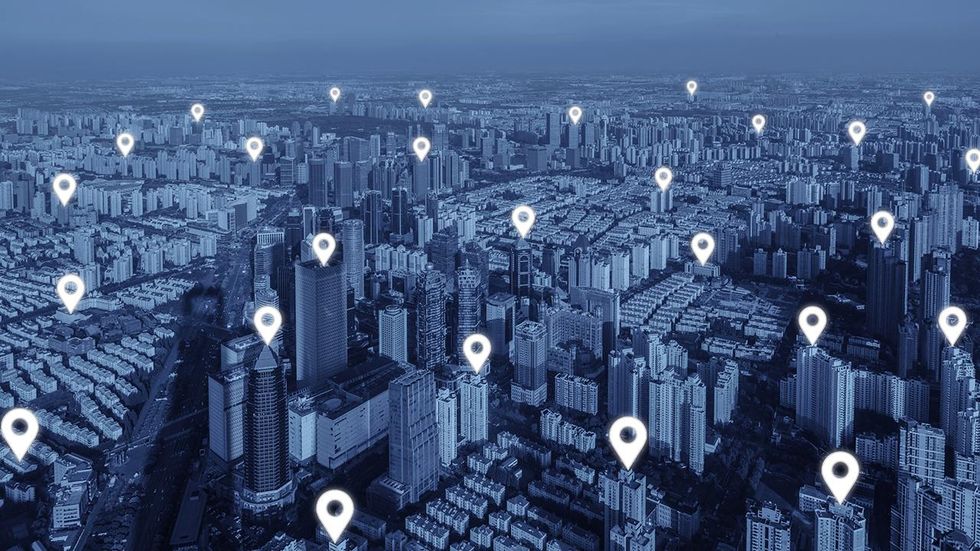
Location, location, location. Our smartphone location data is a hot commodity for ad brokers. (Prasit Rodphan/Getty Images)

Smartphone apps are tracking and selling your location data faster than most people realize, the Wall Street Journal reported. Every time you open an app and authorize it to access your location, you risk having that information leaked or exploited.
Although location data is helpful for travel directions and weather reports, there is a downside to how the data is used — often unknowingly by smartphone users who are giving it away for free.
The information is often used for “location aware advertising,” those pesky ads that pop up when we're driving near certain businesses. Dozens of companies track your location and send you ads based on this information.
But wait, it gets creepier.
Advertisers want "a complete record of where everyone in America spends their time, in order to chop those histories into market segments to sell to corporate advertisers,” The Wall Street Journal reported.
Welcome to the world of online advertising, where “massive marketplaces” hold ongoing high-speed auctions for ad space.
Just how lucrative is the location-tracking business? In 2017, marketers spent a total of $16 billion on location-based ads. That amounts to about 40 percent of all mobile ad spending, according to research firm BIA/Kelsey. The research firm predicts these types of ads will double by 2021.
The data used to serve just one ad can filter through the databases of multiple data brokers and ad agencies in a matter of seconds. Data brokers are the companies that track, buy and sell the information to advertisers, government agencies or other groups. Exactly how the information is used is not revealed to the general public.
Turning off a phone’s location tracker is often not enough to keep you hidden from the prying eyes of data brokers.
For example, phone carriers always know where you are because they can tell which cell tower your phone uses. You are also tracked without choice while passing through open Wi-Fi hot spots. The phone’s Wi-Fi constantly broadcasts a “a unique MAC address and a history of past Wi-Fi connections, the report stated.
Retailers can also track you as you travel to and from their stores.
Another example is WeatherBug, an app that needs location data to provide forecast updates. Conveniently, WeatherBug is owned by GroundTruth, an advertising company. And all of the location data the app needs to operate is also being sold to outside companies, according to the report.
GroundTruth has the ability to draw location data from “over a hundred thousand” other apps that have integrated bits of its code, company president Serge Matta, told the WSJ. App makers agree to harvest location data because it grants them access to GroundTruth’s mobile advertising network.
On a daily basis, GroundTruth tracks the whereabouts of some 70 million people in the U.S., including when they leave for work, when they come home, and where they attend public events.
Data brokers say they can track our buying habits, but do not store all of your personal information into one place. Exactly how that works isn't clear.